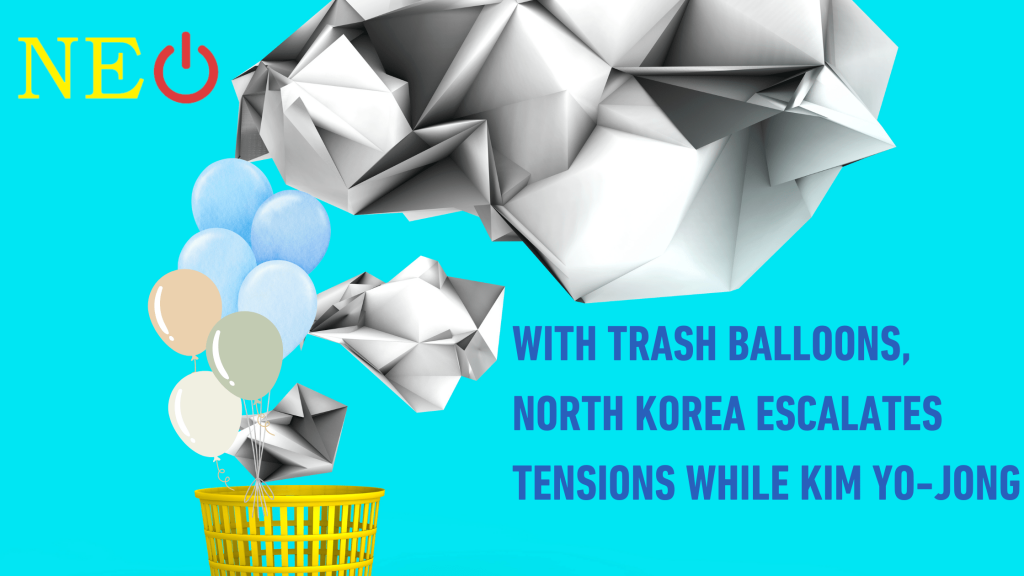In a series of unusual and provocative actions, North Korea has sent hundreds of balloons filled with trash into South Korea, escalating tensions between the two countries. These actions have drawn sharp rebukes from South Korean officials, who have vowed to respond with measures that North Korea "would find unbearable."
Table of contents [Show]
The Trash Balloon Campaign
Since last Tuesday, North Korea has launched over 800 balloons carrying various types of waste, including cigarette butts, scraps of cloth, waste paper, and vinyl. The balloons have landed in multiple areas, including the capital city, Seoul. South Korean President Yoon Suk-yeol condemned these actions as "dirty provocations no normal country would think of," and promised retaliatory steps.
Military and Civilian Response
South Korea's Joint Chiefs of Staff have been monitoring the launch sites of these balloons and conducting aerial reconnaissance to track and collect them. Citizens have been advised to avoid touching any objects suspected to be from North Korea and to report them to military or police authorities. The South Korean military has mobilized chemical and explosive response teams to recover debris, ensuring public safety amid the provocations.
North Korea’s Motives and Reactions
This balloon campaign is part of a broader pattern of North Korean provocations, including missile tests and attempts to develop space-based reconnaissance capabilities. Recently, North Korea's second attempt to launch a spy satellite ended in failure. Despite this setback, Kim Jong-un has urged his military scientists to continue their efforts, viewing these capabilities as crucial for countering perceived U.S. and South Korean military threats.
Kim Yo-jong, the powerful sister of Kim Jong-un, confirmed the balloon launches, describing them as a response to South Korean activists who have been sending anti-North Korean leaflets across the border. She hinted that such actions could become a standard North Korean retaliation, threatening to scatter "mounds of wastepaper and filth" in South Korea.
South Korea’s Countermeasures
In response to the trash balloons, South Korea is considering resuming loudspeaker broadcasts across the border, a practice halted in 2018 following a diplomatic summit with Kim Jong-un. The National Security Council standing committee is set to discuss this and other potential countermeasures.
International and Regional Implications
The escalating provocations have heightened concerns among South Korea's allies, particularly the United States and Japan. These actions violate the armistice agreement and contribute to regional instability. The international community continues to urge restraint and dialogue to prevent further deterioration of the situation.
North Korea's provocative behavior underscores the fragile and volatile nature of inter-Korean relations. As both sides engage in a tit-for-tat escalation, the risk of further destabilization looms large. The international community will be closely monitoring these developments, hoping for a return to diplomatic engagement and peaceful resolution of differences.
In conclusion, North Korea's use of trash balloons represents a unique and concerning form of provocation that has added a new dimension to the ongoing tensions on the Korean Peninsula. As both sides prepare for potential further escalations, the importance of dialogue and diplomacy cannot be overstated.









